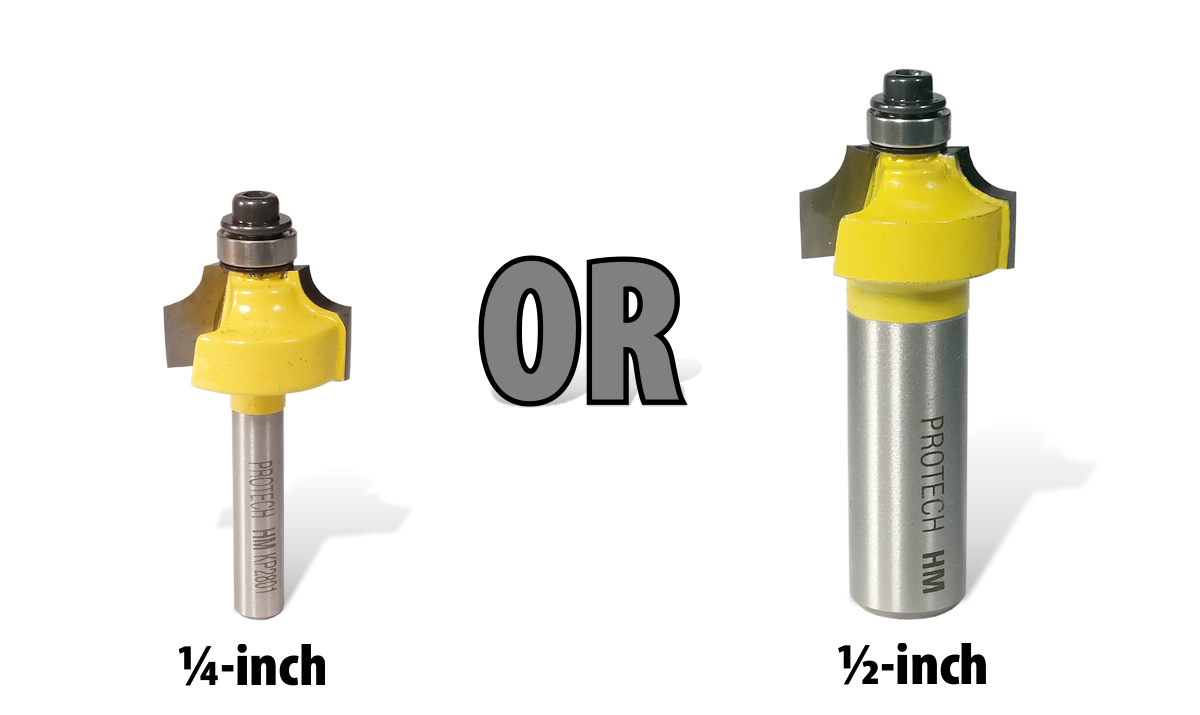
I am new to routing and router bits are a confusing subject!
Is a Router Bit with a ½-inch shank better than one with a ¼-inch?
When you shop for router bits, you will probably notice that they come in a huge variety of types and sizes. This is a good thing as the variety makes the router a versatile tool. Observe closely, and you will find that router bits fall into two categories; those with ¼-inch shanks and those with ½-inch shanks.
Most bit profile types are available in both shank sizes, and some larger routers come with collets to fit both sizes of shanks. You can use either size, but you probably wonder which is better. The short answer is: All things being equal, ½-inch is better. There are some cases where ¼-inch is the only option and many cases where shank size does not matter.
Router bit shanks
The shank is the solid shaft part of a router bit. It is part of the bit that goes into the router's collet and is secured with the collet nut. At the bottom end of the shank is the bit body, the part that contains the cutter or cutters that shape or cut the wood. Bits with large bodies are mostly available only with ½-inch shanks, while bits with very small or narrow bodies may have only ¼-inch shanks. Most bits out there are available with both ¼-inch and ½-inch shanks.
Greater mass
Router bits with ½-inch shanks can have up to four times the mass of ¼-inch-shank bits, which translates into greater stability. The extra mass helps reduce what is known as "chatter," (vibrations) caused by the high speed of the spinning bit. As expected, a more stable bit resolves into a cleaner cut.
Less deflection
In addition to the centrifugal forces at work on a spinning router bit, there are also can be significant sideways forces imposed by the operator pushing the bit into the wood. Sideway forces can cause the bit to deflect, or flex, affecting the outcome of the cut. This is especially true for large-diameter cutters that have a lot more side load during the feed process. Example: Raise Panel Router bits where a lot of material is removed at once. A ½-inch shank resists deflection better than a ¼-inch shank. This can be especially important when using a long bit, which is subject to greater deflection.
When ¼-Inch bits make sense
The advantages of ½-inch-shank bits do not always apply. In some cases, ½-inch shanks are not available. As a result, most woodworkers who use routers end up with a collection of bits containing both ½-inch and ¼-inch shanks including different routers for different applications.
Finally, if you have a small router or a laminate router, the tool may accept only ¼-inch shank bits. Small diameter cutters (router bits) require higher operational speeds. Large routers often do not offer the required higher speed to get the right performance from the router bit.








